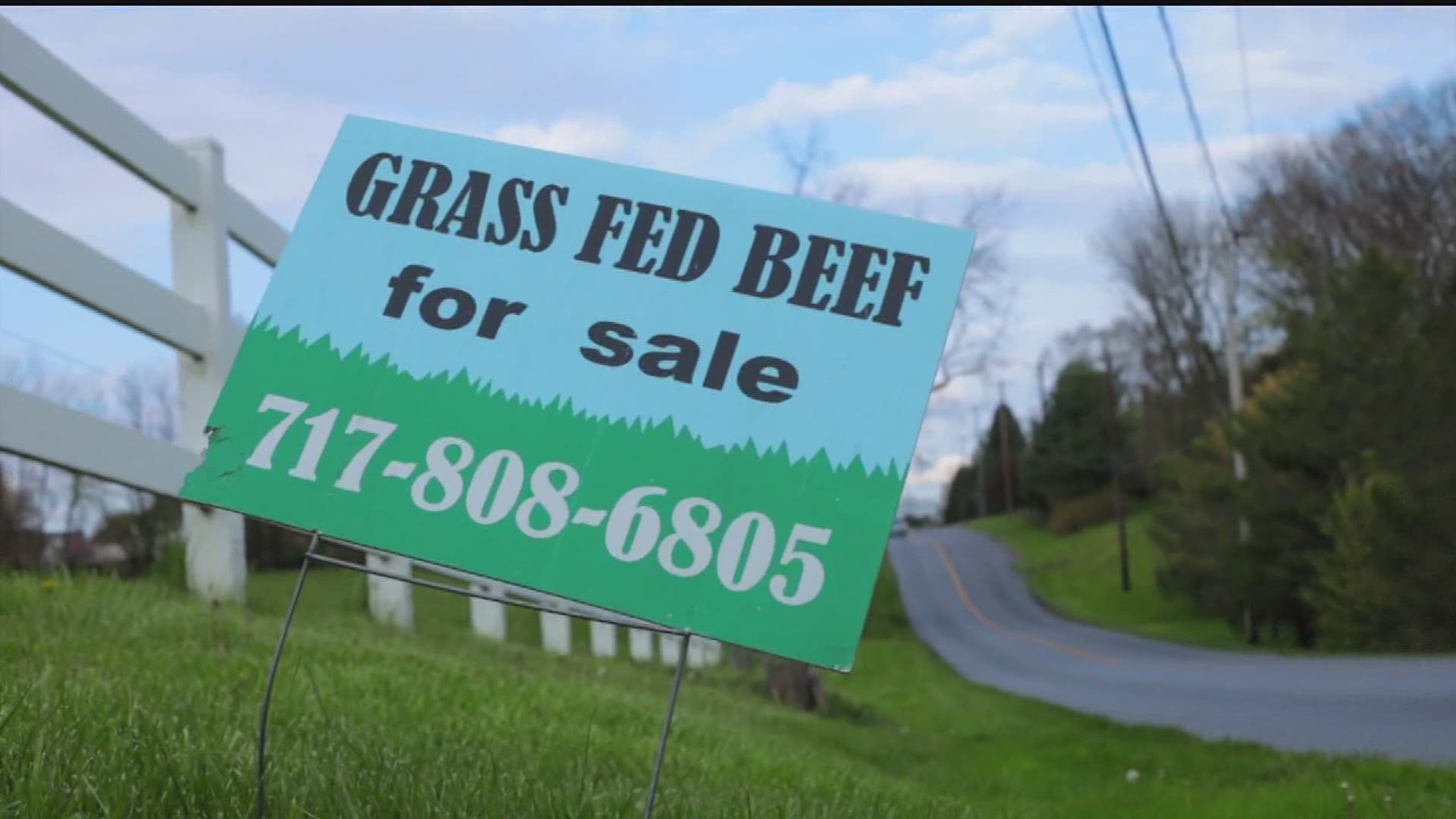LANCASTER COUNTY, Pa. — The phone at Double Spring Farm in West Lampeter Township, Lancaster County, hasn't stopped ringing. Farmer Don Bare and his wife Brenda are inundated with new customer calls. Their grass fed beef is selling out fast.
DON BARE: It’s never been anything like this. I expect to be completely sold out in about 3 months.
RACHEL YONKUNAS: Has that ever happened before?
DON BARE: No, that’s never happened before and we’ve been selling meat for about 6 years. I thought we would have plenty of meat to take us throughout the year, but what happened in the last two weeks, the way the calls are just [coming in], it’s just crazy. Of course, I’ve never seen anything like it.
Customers may be buying in bulk out of fear. After the coronavirus pandemic threatened the nation’s food supply chain, President Trump signed an executive order to compel meat processing plants to stay open.
Four meat processing plants were temporarily shutdown after workers tested positive for COVID-19. Those companies say they have added new safety measures and provided personal protective equipment for all workers.
“I foresee a point in the future where the food supply chain is going to potentially fail in Pennsylvania,” said Republican State Representative Russ Diamond, who represents parts of Lebanon County.
Some Pennsylvania poultry farmers have been forced to euthanize chickens due to meat processing plant closures. Dairy farmers have dumped out 5% of the state’s milk supply—product that was intended for schools and restaurants.
“There is no food shortage,” asserts Darrin Youker, Director of State Government Affairs for the Pennsylvania Farm Burear. “Throughout all this, farmers have been working every day. There are disruptions in the supply chain and that is for sure, but again, our farmers have been working every day through this crisis.”
Working through this crisis is what Don and Brenda intend to do. Their steers will be living on their farm until the fall.
“And the place where we do take our steers, it’s USDA approved and they are not having any issues that they need to close,” said Brenda Bare.
Though the Bare family has already run out of popular cuts of meat—with four children and 14 grandchildren, it’s no wonder the roasts are gone—the Bare’s still have plenty of beef.
“We still have ground beef and we have some other steaks like the N.Y. Strip, Delmonicos and filet mignons,” said Don.
And they are ready for plenty of more calls.
“People like to support the local farmer because they want to see the local farmers here,” expressed Don. “They don’t want all the farms to go away so they are very much interested in supporting local farmers.”
The Pennsylvania Farm Bureau says buying local is the best way consumers can help Pennsylvania farmers. At the store, that means looking for products with the PA Preferred Logo on them. Milk with a plant code beginning with “42” means the milk is processed in Pennsylvania and sourced predominately from Pennsylvania dairy farms.

